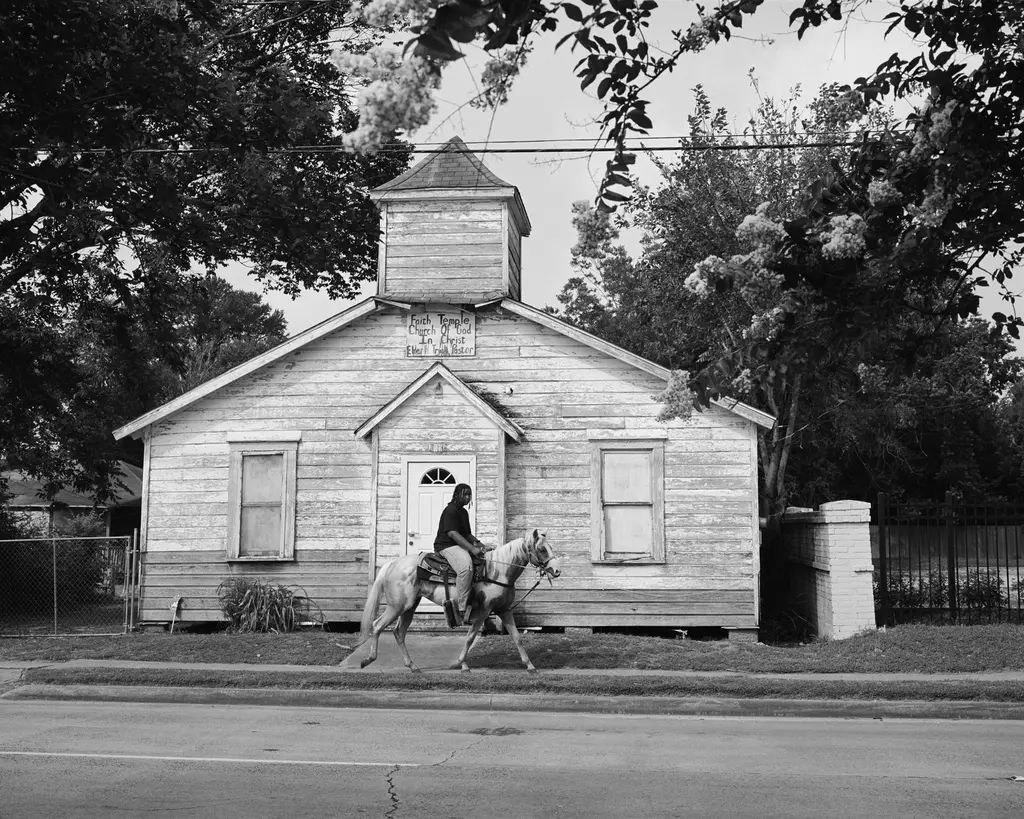Documenting life on the fringes in Thatcher’s Britain
- Text by Miss Rosen
- Photography by Richard Davis

Margaret Thatcher’s Britain was a dark place, replete with high unemployment, poor living conditions, and criminal neglect of the poor. But a new generation coming of age refused to go quietly into the night, making their way through the world while fighting back.
When Richard Davis dropped out of school at 16 in 1982, he was adrift until he ventured into the Birmingham Trades Council ‘Centre For the Unemployed’ and learned photography. “All of a sudden I felt I had a purpose,” Davis says. “I had a voice, and via my camera I felt I could contribute towards society – but on my terms.”
Davis became politically engaged with the miners’ striker of 1984, when Thatcher branded workers and their supporters as “the enemy within.” “I was proud at the time to be considered an enemy within,” Davis says. “And so began a life long hatred of the Tories and how they treated the working classes.”
In 1988, Davis began teaching photography at Manchester Polytechnic. He was advised not to visit the neighbourhood of Hulme, so the next day he set out to see for himself. “It provoked a combination of fear and awe,” he recalls. “It was like nothing I’d seen before; it almost seemed like it was in black and white. There didn’t seem a lot of colour to Hulme in the late ’80s, which really suited me.”
Davis quickly fell in with a community of artists, punks, musicians, travellers, and dropouts who called Hulme a home. Six months later, Davis was offered the key to a squat at 257 Charles Barry Crescent where he lived and worked, making a series of photographs just published in Hulme 1980s-90s (Café Royal Books).
Davis transformed the flat into a studio and darkroom, using the money he saved on rent to buy photography supplies. Though there was never a shortage of things to photograph in the neighbourhood, Davis was careful not to advertise the fact he carried a camera. “It could be very dangerous,” Davis says. “I got mugged at knife-point on a stairwell but luckily I didn’t have my camera on me.”
Despite the challenges, Davis says that he feels very lucky to have had these experiences. “You could survive and flourish on very little money. Hulme enabled me space to do my own thing without any outside pressure to conform. A lot of people felt the same. They created a positive and constructive environment, especially if you were involved in the arts.”
Davis’s photographs of Hulme capture a place and time that no longer exists; the whole area has since been levelled, with new construction built in their stead, attracting a different class of residents. “Living cheaply and doing your own thing is so much harder now for young people,” Davis says. “There is too much pressure on today’s youth to conform. We seem to have lost so much freedom since the 1980s.”

Richard Davis Self-Portrait in Hulme Flat
Richard Davis: Hulme 1980s-90s is on view as part of an exhibition of the British Culture Archive at The Social in London through the end of December 2019.
Follow Miss Rosen on Twitter.
Enjoyed this article? Like Huck on Facebook or follow us on Twitter.
Latest on Huck

Meet the trans-led hairdressers providing London with gender-affirming trims
Open Out — Since being founded in 2011, the Hoxton salon has become a crucial space the city’s LGBTQ+ community. Hannah Bentley caught up with co-founder Greygory Vass to hear about its growth, breaking down barbering binaries, and the recent Supreme Court ruling.
Written by: Hannah Bentley

Gazan amputees secure Para-Cycling World Championships qualification
Gaza Sunbirds — Alaa al-Dali and Mohamed Asfour earned Palestine’s first-ever top-20 finish at the Para-Cycling World Cup in Belgium over the weekend.
Written by: Isaac Muk

New documentary revisits the radical history of UK free rave culture
Free Party: A Folk History — Directed by Aaron Trinder, it features first-hand stories from key crews including DiY, Spiral Tribe, Bedlam and Circus Warp, with public streaming available from May 30.
Written by: Isaac Muk

Rahim Fortune’s dreamlike vision of the Black American South
Reflections — In the Texas native’s debut solo show, he weaves familial history and documentary photography to challenge the region’s visual tropes.
Written by: Miss Rosen

Why Katy Perry’s space flight was one giant flop for mankind
Galactic girlbossing — In a widely-panned, 11-minute trip to the edge of the earth’s atmosphere, the ‘Women’s World’ singer joined an all-female space crew in an expensive vanity advert for Jeff Bezos’ Blue Origin. Newsletter columnist Emma Garland explains its apocalypse indicating signs.
Written by: Emma Garland

Katie Goh: “I want people to engage with the politics of oranges”
Foreign Fruit — In her new book, the Edinburgh-based writer traces her personal history through the citrus fruit’s global spread, from a village in China to Californian groves. Angela Hui caught up with her to find out more.
Written by: Katie Goh

